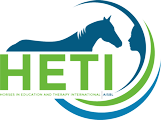
Interpersonal Trust and Self-Confidence as Central Effects of Equine-Assisted Interventions for Children
€10.00
| Author | Annika Barzen |
|---|---|
| Year | 2023 |
| DOI | |
| Volume and Page number | Volume 22, page 10 |
In this study, 20 qualitative children’s interviews were conducted and evaluated using the grounded theory method to investigate the following research question: What is relevant from the perspective of the surveyed children about equine-assisted interventions? To reconstruct the children’s perspective, drawings painted by the children during each interview had been collected as another means of expression. The consideration of the children’s perspective has received little attention in research so far and this methodological access gave an insight into children’s experiences and thus, into the effects of the interventions. The interviews were analyzed with the qualitative grounded theory methodology and the segment analysis of the drawings offered additional material.
The interviewed children took part in the equine-assisted intervention for emotional stabilization, because they had been exposed to increased psychosocial stress, like growing up in residential groups for children and youth welfare and not with their parents.
The interviews revealed that, from the children’s point of view, it is of particular importance to the experience that they can trust others and trust themselves as well. Trust in others is supported by the pedagogical riding instructor, who ensured the safety of the animal. The positive experiences with the animal and the resulting trust had a positive effect on the children. If the intervention took place in a group, the children experienced mutual support.
The children’s self-confidence was mainly strengthened by learning new things in the equine-assisted setting. At the beginning of the intervention, it was often necessary to overcome fears and in further intervention, there were always new challenges to be conquered with the support of the riding instructor, so that various experiences of success arose and the children felt able to act.
